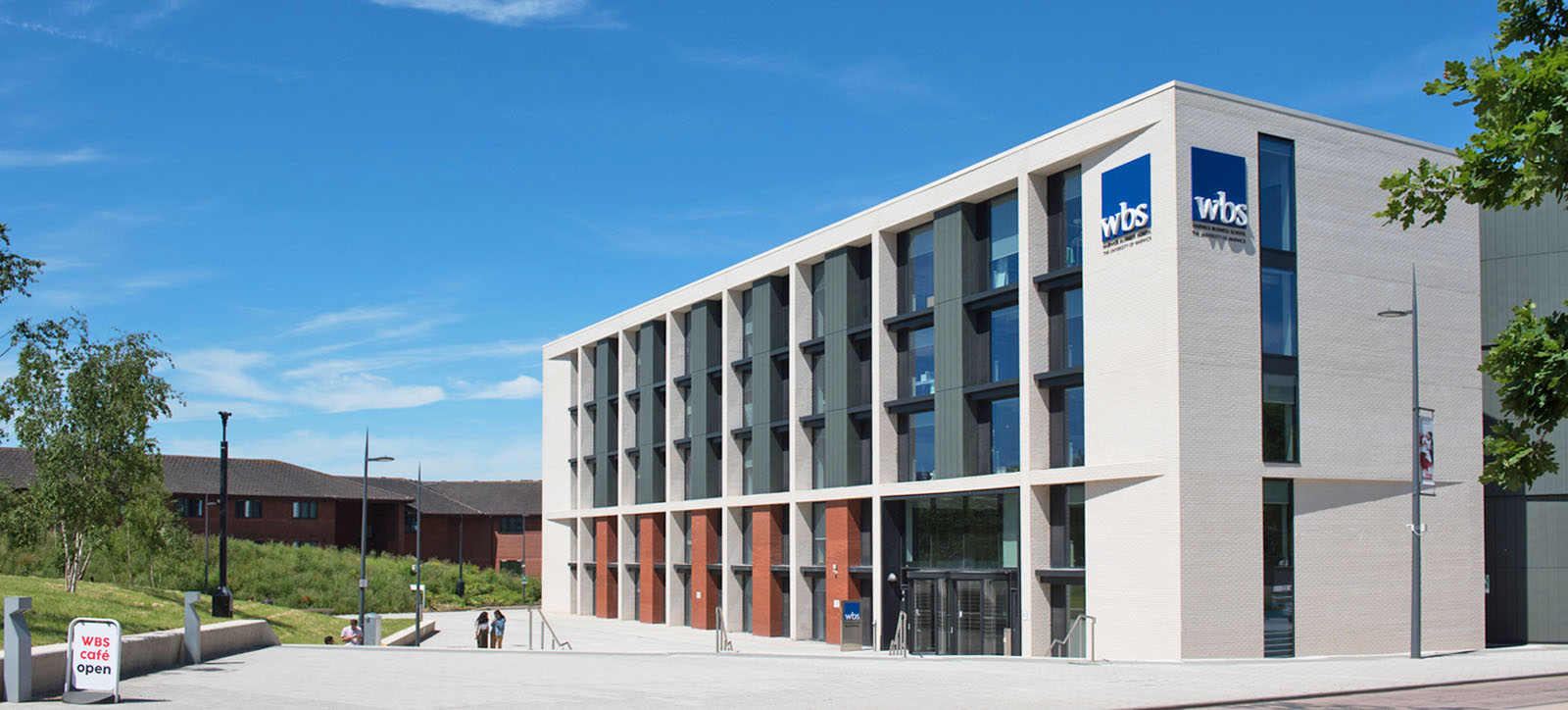
- Landmark investment to address the UK’s ‘productivity puzzle’
- Warwick Business School will partner with eight other institutions
- UK’s productivity among the lowest of developed economies
- Productivity Institute will create eight Regional Productivity Forums
Warwick Business School will be part of a new institute funded by the Economic and Social Research Council (ESRC) to help the UK economy become more productive.
The new £32 million Productivity Institute is being funded by £26 million from ESRC and £6 million from Warwick Business School and its partner institutions for five years, from September 1 2020.
Warwick Business School will partner with eight other institutions across the country, with Alliance Manchester Business School leading the research project in a bid to help the UK Government understand how to improve productivity and living standards as the economy begins to recover from the impact of COVID-19.
While UK productivity (the amount of production per worker) has historically risen over time, it is lower now than it was at the onset of the financial crisis in 2008, even though the economy grew until COVID-19 reached the UK – something dubbed Britain’s ‘productivity puzzle’.
Solving this puzzle could mean better jobs, higher living standards and the country becoming richer on a per-person basis.
The Productivity Institute is being funded by the ESRC as part of its largest single investment into social sciences research. ESRC is part of UK Research and Innovation, which is principally funded by the Department for Business, Energy & Industrial Strategy (BEIS).
Nigel Driffield (pictured), Professor of International Business, a leading academic figure on inward investment and economic development will be part of the Productivity Institute and lead the school's involvement.
Professor Driffield said: “This landmark investment by the ESRC demonstrates how serious the UK Government is about solving the UK’s productivity puzzle and importantly, it signals a commitment to help create an economy that works for everyone, with growth that is sustainable, inclusive and regionally distributed.
“The productivity puzzle has blighted the UK economy for more than a decade and it is imperative that it is solved if the the country is to overcome the hugely damaging effects of COVID-19 and be able to thrive outside the European Union.
“Our particular role at Warwick Business School will be to work with existing centres such as the Enterprise Research Centre, and to build on existing expertise concerning regional productivity, and to work with business to address this.”
The Institute will develop its research agenda and practical business interventions through a programme of regional engagement with policymakers and business leaders from firms of all sizes as well as bodies like HM Treasury, BEIS and the Confederation of British Industry (CBI).
It will create eight Regional Productivity Forums across the country to work with these businesses and policymakers on critical productivity issues in the regional context; and it will form a national Policy Reform Group to work with policymakers on productivity aspects of nation-wide policies.
It comes alongside a new £5 million research programme at the London School of Economics (LSE) to accompany the Institute, which will identify ways that the UK’s most innovative products and services can be distributed more evenly across each sector of the economy to increase productivity.
ESRC’s Executive Chair, Professor Jennifer Rubin, said: “The Institute at Manchester and the LSE research programme address what is arguably the UK’s biggest economic challenge. This funding represents the largest economic and social research investment ever in the UK, befitting its enormous potential to improve lives for millions of people.
“The aim is to ensure that advances in knowledge inform the significant decisions and interventions that policymakers, businesses and individuals must make to improve productivity, and to achieve the attendant improvements in wages and living conditions that doing so can drive.”
The Institute’s goal is to make long-term policy recommendations that help to improve the UK’s productivity, which is lower than in the US, Ireland, France, Germany and Spain, according to the Organisation for Economic Co-operation and Development.
Minister for Science Amanda Solloway said: “Improving productivity is central to driving forward our long-term economic recovery and ensuring that we level up wages and living standards across every part of the UK.
“The new Productivity Institute and LSE’s innovative research will bring together the very best of our researchers, boosting our understanding of the different drivers of productivity and helping people and businesses earn more in every area of our economy.”
The Institute will be led by Professor Bart van Ark as Managing Director, who is Professor of Productivity Studies at Alliance Manchester Business School and was previously Chief Economist at the Conference Board in the US.
Professor van Ark said: “For many years the UK has grappled with how to create better jobs and boost productivity, thereby increasing people’s prosperity around the country. The COVID-19 recession makes it time for a fresh look at these challenges.
“If we are to reboot the economy we need jobs that create high value, use economic and natural resources efficiently, and drive sustained growth through technological change and innovation. Productive jobs will pay more and improve people’s well-being.
“Working closely with businesses, policymakers and other stakeholders across the nation and sharing insights with other countries, we aim through our research and engagement to develop practices and policies to encourage more productive and inclusive growth across the UK.”
The other partner institutions working alongside Alliance Manchester Business School and WBS are: University of Cambridge, the National Institute of Economic and Social Research, University of Glasgow, University of Sheffield, King's College London, Queen's University Belfast and Cardiff University.




 X
X Facebook
Facebook LinkedIn
LinkedIn YouTube
YouTube Instagram
Instagram Tiktok
Tiktok